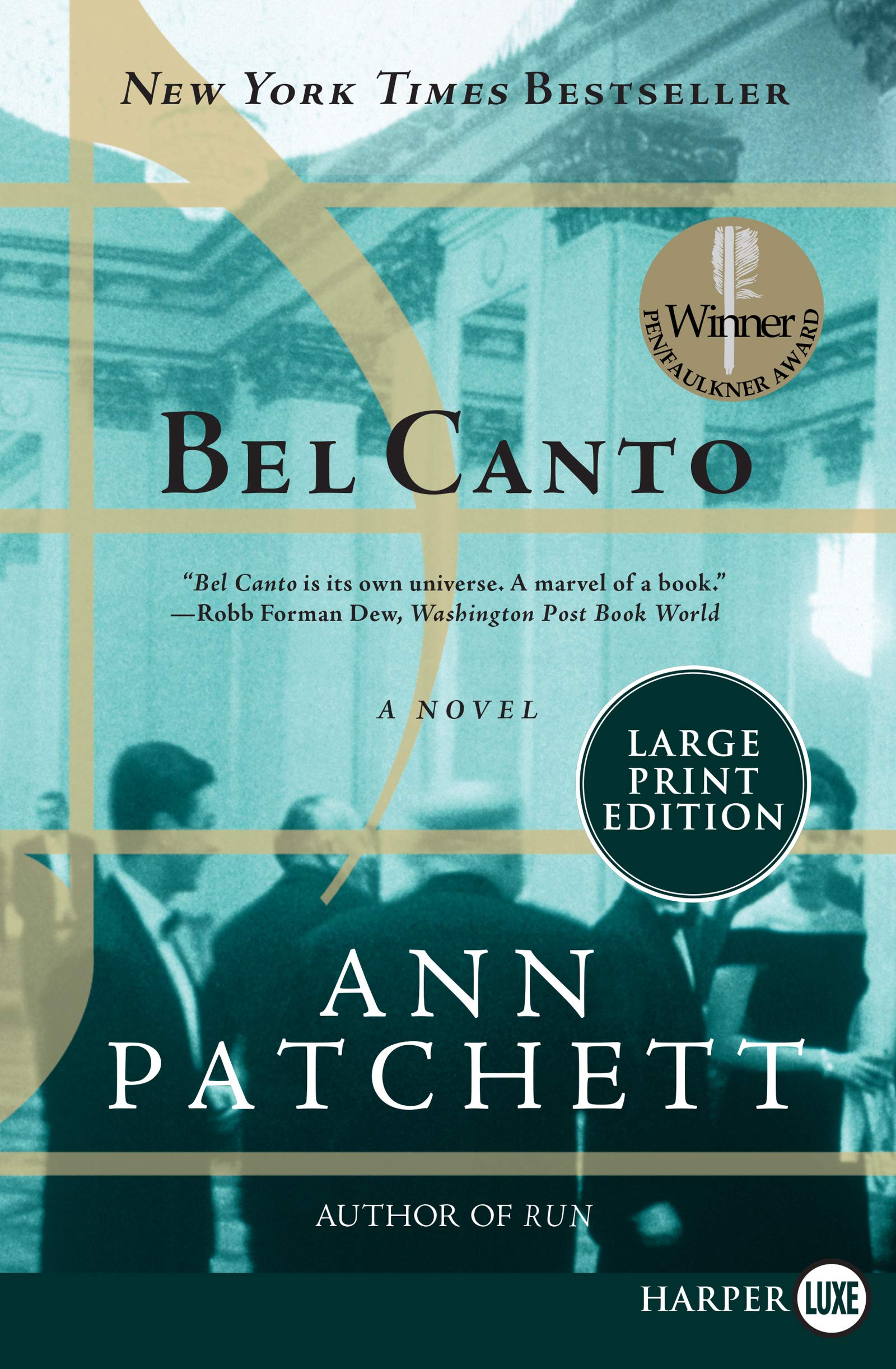Let me preface this by saying this is somewhat of a weird post. It’s kind of like a book report, but also not really, but maybe also kind of like a book review.
Lately, I have been thinking of books to read, books I have read, and books that will always hold special places in my heart.
Bel Canto by Ann Patchett is one of them.
The odd thing is that it certainly isn’t one of my favorite books. In fact, when I first read it, I strongly disliked it. But as I thought more about it and its connections to our society today, I became more and more interested in the message behind it.
In Bel Canto, there is a group of high-profile, diverse civilians partying at a home, and they soon find themselves held hostage by foreign entities. The entire book, except for the ending, is about these people’s lives under house arrest.
I found this book incredibly slow and, at times, boring to read. But after I read it, I realized that this could very well be part of the author’s intent. Here’s why:
At the beginning, the civilians are all wary of each other. However, opera singer Roxanne Coss has caught the attention of host Hosokawa because of his love for opera, which hasn’t been kindled lately because of his duties as vice president of a Japanese company. This is the first layer of this story. Both Coss and Hosokowa were busy beings, representing much of the American population. Many times, I think that people are so busy and so involved in their work that they often forget about the true beauties of life. Because these two characters are held in captivity, their lives, or what they think of as their lives, are stripped away from them. In captivity, they find themselves capable (in terms of time) of falling in love with each other. This develops because of their similar love for culture and the opera. Another interesting thing about their specific story is that there is actually a language barrier between the two. Coss is full American, and Hosokawa can barely speak a word of English. This interesting addition to their relationship allows Patchett to show that even though certain societies and communities may be so divided in the present due to seemingly a lack of similarities, it is being human and having appreciation and respect for the arts and cultures of others that brings us together.
The second layer of this story is the relationship between the hostages and the kidnappers. At the beginning of the book, the kidnappers are rough and brutal with the hostages; but as the book progresses, so too does the developing relationships between characters of opposite sides. It progresses to the point that near the end, both captive and captor are living in unison: together and peacefully. I’m not entirely sure why Patchett chooses for this to happen, but my guess is that she is showing that we humans are ultimately humans, and society, once stripped of the flaws of human nature and once focusing on the intricacies of life, can live harmoniously.
To emphasize this development, a relationship blossoms between Hosokowa’s young personal interpreter, and a girl masquerading as a boy soldier captor. This, I believe, once again transcends the idea of humans living synchronously despite having different philosophies and ideologies.
The last point I want to bring out is that of spontaneity. Because these people are in captivity and are unsure of how long they have to live, in their minds, it is imperative they embrace the love they have for each other and act upon it quickly. As seen in the story, both love stories evolve quite quickly, despite the slow-moving pace of the book.
And that, I believe, is the ultimate message of the book.
The contrast between the fast-moving relationships versus the overall storyline of the book (excluding the very end) accents the disconnect between the beauties and love in life and the hardcore work culture of the modern day. It’s ironic because in captivity, the roles are reversed. The relationships are fast-paced, while the story is very slow-moving. However, in this corporate-driven world we live in, relationships and spontaneity are slow-moving and often sacrificed for work potential and power-climbing.
Of course, I feel like I could go on and on about this book. There are just so many intense layers that create this work of art, and I could honestly talk about it forever.
Again, it’s weird for me too–because it is most definitely not a favorite of mine.
Now, this is not to say that I disagree with the way the world works or that I think we should all just live in captivity for a couple weeks and admire the beauties of life. Instead, it’s to encourage self-reflection and self-discovery and to reiterate that when the layers of human nature are stripped down, perhaps the connecting piece between us all is appreciation for our cultures and love for each other.
Oh and also, you should read the book.


